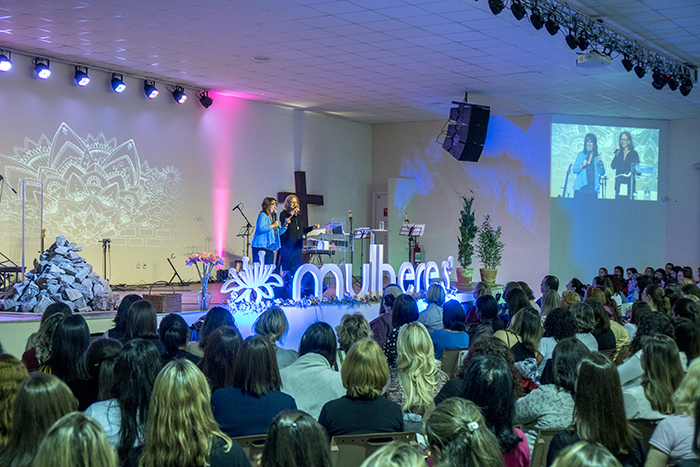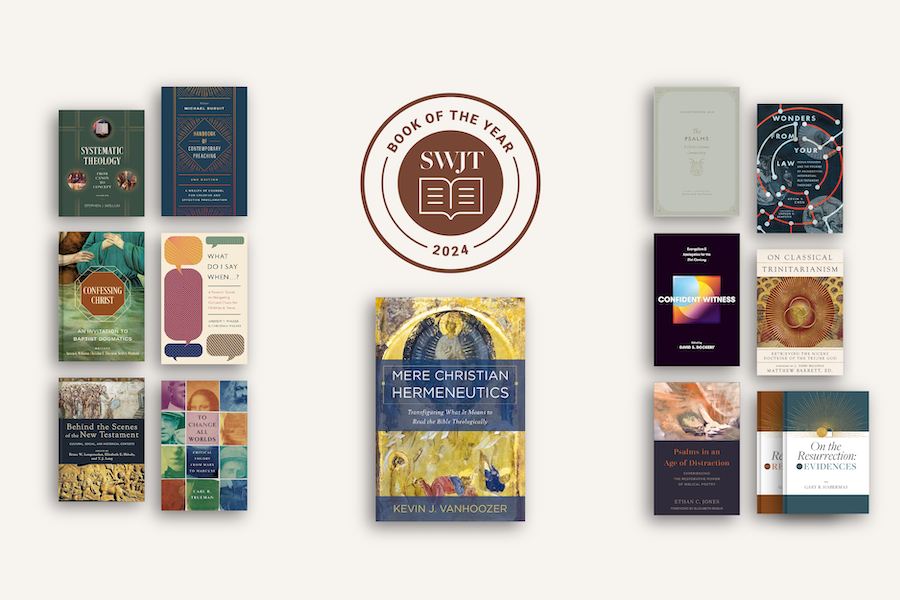Women’s conference in Brazil encourages, challenges women in ministry

Christian women in Port Alegre, Brazil, face unique challenges. In a region described as a “graveyard for pastors,” support is difficult to find, and resources are difficult to access. Women in ministry and those who serve alongside their pastor husbands must combat modern worldviews, challenge secular ways of thinking, and attempt to reach those who combine their Catholic heritage with spiritist practices. But in spite of these unique challenges, many of these women have some of the same universal concerns and questions about what it is to be a woman who follows the Lord.
Familiar with these challenges and concerns, Marta Evangelista of Mont Serrat Baptist Church in Port Alegre has sought to make biblical teaching the foundation of the way they minister to the women of their church and community. She and her husband, who pastors the church, have already taken steps to do this, but in an effort to continue this effort, they envisioned a conference with the goal of a focused weekend of biblical teaching on womanhood.
Because of their personal connections with Southwestern after a sabbatical in Fort Worth, Evangelista knew a partnership with Southwestern’s Women’s Programs was a perfect fit for the conference. Plans were made for a conference in late October during which Southwestern faculty would teach from the Word of God, delivering a message on biblical womanhood.
At the core of conference planning were dozens of ministry volunteers who diligently looked after details of the conference and constantly prayed for each of the nearly 1,000 women who attended. Conference speakers included Dorothy Patterson, first lady of Southwestern Seminary; Terri Stovall, dean of women’s programs; Candi Finch, assistant professor of theology in women’s studies; and Katie McCoy, assistant professor of theology in women’s studies.
Evangelista and Patterson opened the conference with sessions on Nehemiah and Genesis 1-2. Evangelista called on women to begin the process of restoration in families, churches and communities, and Patterson pointed to God’s plan for womanhood. Women responded to their messages, ready to pursue a biblical model of womanhood and seek change amongst themselves and within their families.
Finch later taught from a passage in Romans 12, discussing what it means to combat the world’s view from a biblical perspective. Speaking to modern feminism’s impact in both the United States and Brazil, Finch’s message emphasized the importance of allowing the Word of God to transform one’s thinking. In doing so, women may be better equipped to identify and discern between God’s will and the messages of the world.
McCoy then taught from Deuteronomy 22, speaking about the unfaithful woman, the wounded woman, and the foolish woman. Often a difficult passage for women, McCoy explained, many women responded with testimonies of how this message encouraged them in light of their own experiences, particularly with abuse. Through this time, many women were able to begin the process of healing.
“When I look back to that conference, it was really clear that the Holy Spirit had an appointment with the women there. We at Southwestern got to be used as messengers at that,” McCoy says. “They were so thirsty. They heard a little bit of Scripture, a little bit of truth, and the response was tenfold.”
After each session, women approached each Southwestern faculty member, sharing a testimony of how their message resonated with each of them, challenging them to pursue Christ and honor and serve Him. “Women are hungry to hear the Word of God opened. I truly believe this,” Finch says. “We see this in how women responded in each of the sessions.”
In the final main session of the weekend, Stovall taught from the story of the Samaritan woman. She concluded with an invitation for women to accept Christ, during which 10 women came forward to take that step. Stovall also challenged others to consider what they are doing with the “living water.”
When she called on women to commit to sharing with those in their communities, the response was overwhelming. Women filled the aisles of the church, pledging to do just that. It was a response unlike what many have seen before. One conference interpreter noted, “This never happens in Port Alegre.”
As the conference progressed, women had additional opportunities to connect with women and discuss difficult and relevant topics. Three breakout sessions were offered for mothers, married women, and single women. Then, during a Q&A panel discussion, women submitted questions on topics concerning them. More than 200 questions were submitted, ranging from broad theological questions to specific practical questions.
More than 40 pastor’s wives traveled from across Brazil to attend the conference, and each was invited to a Friday morning brunch during which Patterson spoke, extending encouragement as one wife to another. Then, in a moving moment, ministry and conference volunteers paused for a time to wash the women’s feet and pray over each one who would return to a difficult ministry context in regions that are apathetic or resistant to the Gospel.
“It was a very meaningful moment for many of those women; those pastors’ wives are serving in hard places,” Stovall says. “Living very isolated, have somebody kneel before them, wash their feet, and pray out loud for them—it was amazing.”
When the conference concluded, women returned home encouraged and challenged to utilize their unique giftings as women to impact their communities and families. “The needs of women are the same no matter where they are,” Stovall says. “They are trying to find love and acceptance. They are trying to find affirmation for their gifting and their place in the Kingdom.”



